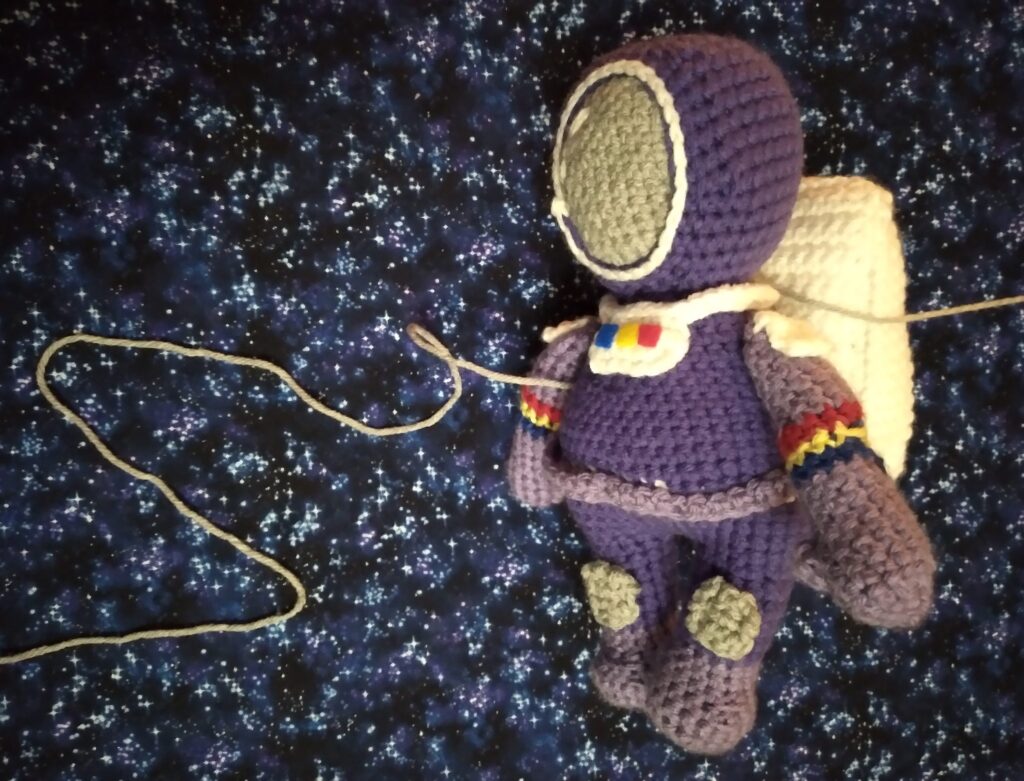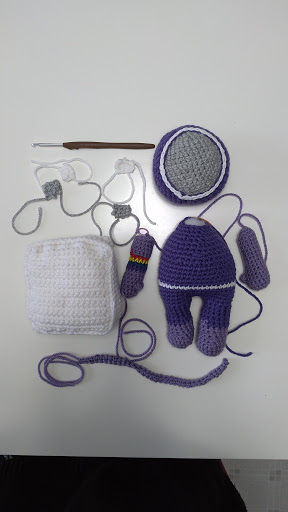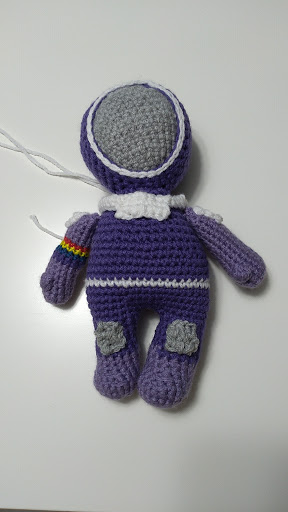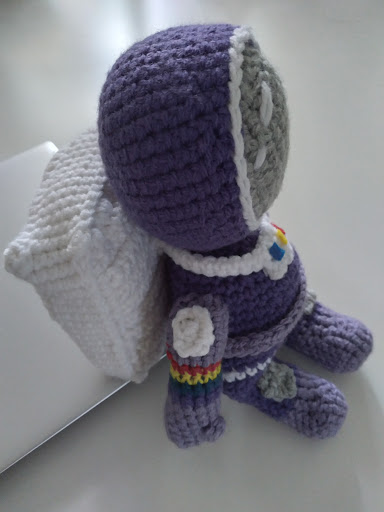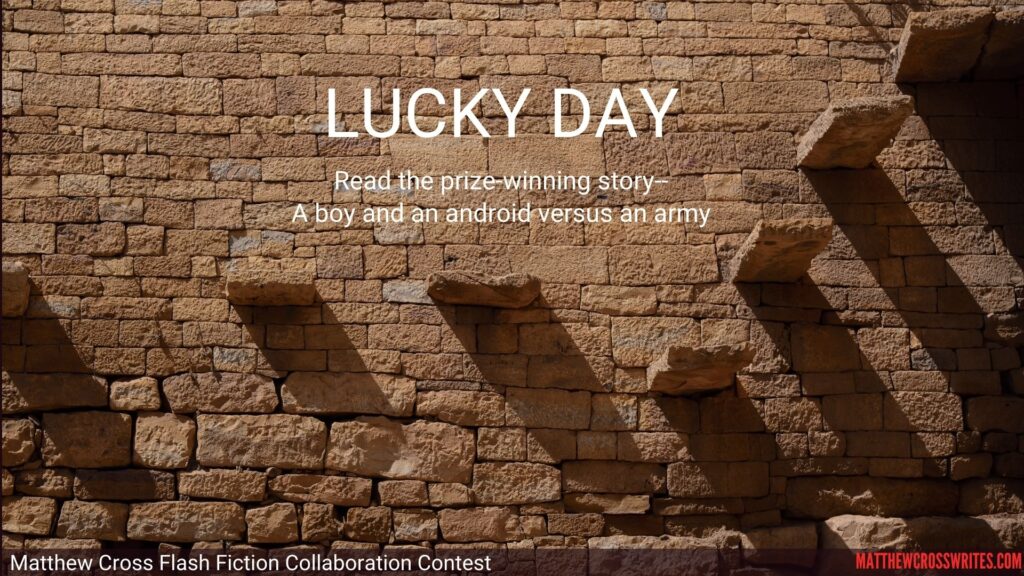
The winner of the Matthew Cross Flash Fiction Collaboration Contest is
S. Songweaver
I started the story below. See how S. Songweaver starts after the red line and takes us to an action-filled and hopeful ending.
Lucky Day
by S. Songweaver and Matthew Cross
Ophir woke in the dark to the thick, warm smell of cabbage cooking.
The lights automatically turned on as he rose from bed. On Hulm, where the sun shone brightly most days, they never lacked for electricity. Baba had scavenged solar panels for the roof and, through constant care, kept the tricky wiring running. To Mama, he would say, “Habibti, as long as you are married to me, light shall always shine on your beautiful face and you shall feel the electricity of my love.”
“Habibti,” Mama would say with a small smile, “Light is plentiful on Hulm. Are you so generous you would also give me air to breathe and ground to walk on? I would much prefer a larger cistern.” But when Mama said it, she said it with such a soft smile and soft eyes that Ophir knew it was a joke.

Ophir snapped on his toolbelt and ran to the kitchen. Baba was making fried cabbage rolls for Lucky Day.
It was still dark outside, but Baba had been up for hours rolling out and cutting the dough. Baba only made vegetarian rolls. They cost less to make, but Ophir could only sell them for half the price of rolls filled with goat meat or even eggs. “Habibti, we don’t eat meat. Some of our friends do and some do not. But we will make sure our friends that don’t have a special treat for a festival day.”
Ophir helped fold the rolls as Baba began dropping them into the hot oil. The first batch always came out wrong and Baba let Ophir eat as many as he wanted from the first batch. Ophir crunched the crispy roll and hot cabbage juice flooded his mouth. The fried dough burnt his tongue.
Baba laughed as Ophir rolled the bite around his mouth and sucked in air, trying to cool the hot dough. Fried juices dripped from Ophir’s lips, and he laughed, too. “Couldn’t wait for it to cool, eh, Habibti?” Ophir shook his head, giggling.
It was going to be the best Lucky Day ever!
Most days, Baba was a mender and Mama was a weaver. Mama worked her looms in the back room where the good light shone in through the window. Baba sat at the counter on the front of the house, repairing small machines, family heirlooms that had cracked, and sometimes even favorite pairs of shoes. He also sold small machines and odds and ends that he had repaired but never been paid for.
It was going to be the best Lucky Day ever!
At sunrise, Mama produced another surprise. She had made a new apron for Ophir, a real shop apron made of sturdy material like Baba’s. And it had two large pockets on the front! Ophir donned the apron over his toolbelt to protect the tools. Mama cinched the strings and tied them behind his back. “You look just like your Baba, Habibti,” Mama whispered.
Baba and Ophir took up their stations at the counter. Baba sold cabbage rolls and Lucky Day ribbons, made by Mama, to the growing crowd. Ophir had grown tall the past year and he could finally see over the counter without standing on a stool. He handed out rolls while Baba handled the money.
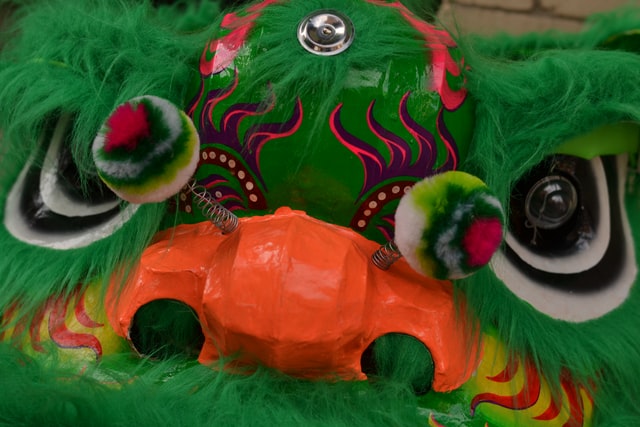
The parade wound through every street of the village on the way to the central square. “Habibti, come look,” Baba called to Mama. “Come! Come! This year, they have made dragons!”
Mama came out from the kitchen, where she had been cooking more cabbage rolls. Baba wrapped his arms around Mama as they watched the dancing figures weave drunkenly up the dusty street. Ophir climbed up on the counter to see over the crowds lining the street. He did not see any dragons. Only men carrying two large, wobbling dog heads and lines of men and women behind carrying streamers. Then came the usual figures wearing headdresses of gold in the shapes of dogs, cats, camels and unicorns.
When the crowd dwindled, Ophir took his tray and followed the crowd to the central square. There, the Eumda would make a speech and declare the day a holiday, even though everyone already knew that. The school was closed and the richest children in the village would buy the treats and play the games lined around the square. The poorest children would run and play, even if they could not afford the games or sweet treats. And, if they could steal a treat, they would.
None of the child thieves bothered Ophir. Only adults seemed to care for the cabbage rolls. Ophir circled the square, trying to make his voice heard over the adult vendors and the gleeful chatter surrounding him. Baba and Mama let him spend the whole day in the square. When his tray and the insulated box beneath were empty, he ran home and bounced on the balls of his feet, eager to return to the square, as Mama filled the box with steaming rolls. Baba counted the coins in the box. “Habibti, you have done well. Even better than last year. We are blessed by Lucky Day.”
Encouraged, Ophir ran back to the square. This time, he ignored the games and he zeroed in on the older adults, urging them to buy his wares and buy one for a friend. If he did well, perhaps they could buy Mama a new cistern. One without a weeping crack. And if he sold all the rolls, he could leave the tray at home and return to the square, free to run and play with the others.
Business picked up at midday, and Ophir even sold a few rolls to his classmates for their lunch. Mama had run out of dough and Ophir’s box was only half full. He kept counting the rolls after every sale, counting down to when he could return an empty box with coins at the bottom to Baba.
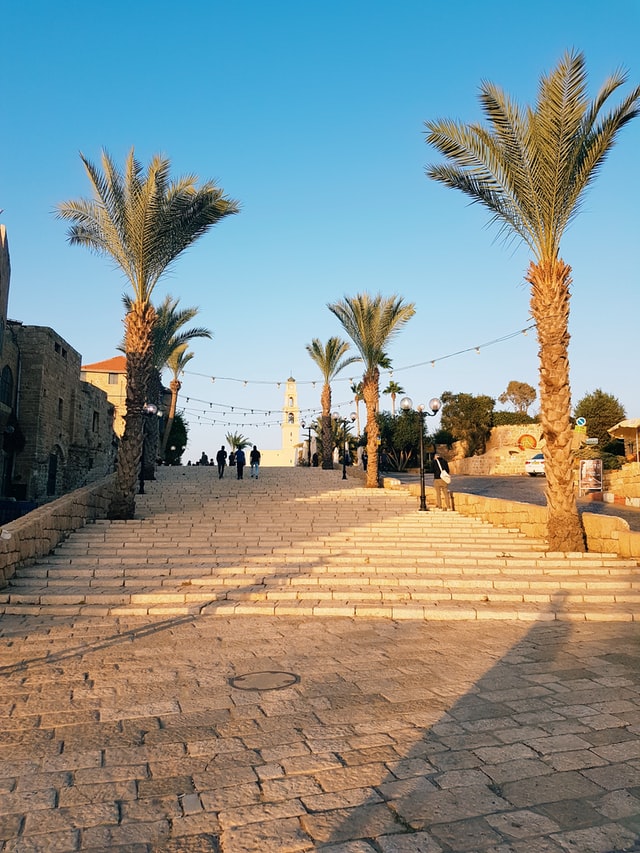
He stood in the shade of an alley, counting the rolls one more time when he heard the popping noises. At first, he thought it might be firecrackers. He looked up, eager to see the bright, sparking colors. Instead, a crush of people ran to the middle of the square. Then he heard gunfire. He turned to run down the alley, but there was already a soldier coming up the far end. Thinking of the coins, Ophir tried to run past the soldier, but the alley was too tight.
The soldier threw Ophir to ground. The man dumped the last of the rolls on the ground and scooped the coins into his pockets. Tears sprang to Ophir’s eyes. His whole family had worked so hard for that money. He rushed at the soldier and found himself suddenly sitting on the ground, his eye exploding in pain. The soldier laughed harshly and pushed Ophir into the square with the muzzle of his rifle. Soldiers with guns ringed the entire square.
Ophir was herded into Alththania’s pawn shop with dozens of villagers, mostly adults. The villagers were crying and screaming, but still they instinctively sorted themselves out. The men pushed the women behind them and faced the soldiers at the door. The women pushed the children to the back of the store, hushing and holding the smallest ones. Ophir was almost 13, but he was short for his age and he found himself at the back of the store with the children too big to carry.
He was afraid, especially when he heard more gunfire erupting outside. But it was distant, coming from other parts of the village, not the square. Ophir closed his eyes and prayed for Baba and Mama. Baba was smart. At the first sign of trouble, he would have dropped the swinging wood door that also acted as the stall’s awning and latched it tight. Soldiers would want nothing with a mender and his second-hand goods.
After the soldiers closed the door, the men in the front huddled together and spoke in low voices. Some of the women cried, and some of the women comforted those women and the children. “It’s OK, Habibti. Everything will be fine,” one woman said, rocking a child in her lap.
“It’s a cleansing,” one young man said very loudly. “It’s happened elsewhere. And now it’s happening here. We’ll never …”

The other men shouted him down, but their frenzied talk continued in a louder rumble.
If Ophir could just make it home, everything would be alright. But for security, Alththania’s shop had no windows. That had been the soldiers’ first mistake. Everyone knew that Alththania bought and sold gold, silver, and the occasional jewel. The glass case behind Ophir was filled with gold necklaces and rings and even a few ruby rings. It was the closest he had ever been to true wealth. But Alththania also bought and sold guns, everything from slug slingers to pulse rifles.
The soldiers had left the jewels, but they had removed the guns from the shelves. The wall behind the main counter had nothing left but empty shelves and wire hangers. But even Ophir knew Alththania kept some things hidden beneath the floorboards.
Ophir could not hear the details of the men’s talk up front, but it was clear there were two camps. One said to wait for the Eumda to sort things out, and the others were suggesting they do their own bargaining, purchase their way to freedom. “We are a poor village,” said a thin man with lined cheeks. “They will soon see that and be on their way.” That brought on doubtful grumbles.
Ophir took stock of his surroundings. There was a door to Alththania’s backroom. He knew all the village alleyways and there was no back door to the pawn shop. But he wanted to get away from the crying, snot-nosed children crowding around him. He wanted to stretch his legs.
Quietly, he crawled around the counter. Luckily, the room was not locked and Ophir crawled inside and latched the door behind him.
It was a small, cramped space with a desk in the front corner and a large safe, shelves on three walls and a large row of shelves running down the center of the room. Curious, Ophir examined the shelves. Like his father’s shop, it was filled with machinery, but expensive machines his father would never be allowed to work on. There were kitchen mixers, microwave ovens, and pulse massagers. They were not new, but they were not dusty or dented like the machines in Baba’s mending shop. Some even came with their own cloth or plastic covers.
In the far corner, where the automatic lighting barely reached, Ophir found the android. The head, torso and arms were all in one piece, sitting drunkenly on a stool. The legs were on a nearby shelf. They gleamed metallically in the dim light.
Ophir looked guiltily at the door, his fingers already itching to touch the android.
His father would have given a day’s wages just for five minutes with the android, working or not. Baba and Ophir had even talked of building their own android one day, but they all knew it was a dream. Like when Mama would buy one lottery ticket and they would take turns holding the ticket and saying what they would buy with the winnings.
Ophir looked guiltily at the door, his fingers already itching to touch the android. The door was still latched and he could not hear anything from the main room. He had more than five minutes. He might have hours and hours.
After examining the parts until he grew tired of standing, Ophir took the pieces to the desk to examine them more closely under the bright, white light of the wall lamp. All the connections seemed sound and clean. Ophir could not understand why the android had even been disassembled.
He only looked guiltily at the door once more before pulling the tools from his tool belt. He set to work, only pausing when he smelled smoke. The smell was very faint but acrid. Not the smell of hearth fires or cooking fires. He heard rumblings from the men in the main room, but there were no screams. He decided the fire must be from another part of the village.
Ophir lost track of time. Only when the start-up sequence began did he finally sit back with a sigh, rubbing his eyes. He heard a murmur from the main room and a strange noise.
There were muffled screams followed by gunshots and whimpering. Ophir swallowed as the android hummed to life. Shuffling could be heard in the next room followed by REE-TA-TA-TA-TA-TA-TA. The sickening noise of gunfire.
Ophir instinctively crouched behind the bot that was still calibrating, making himself as small as possible in a corner of the room until the noise outside stopped.
Nearly an hour passed before the silence in the room was finally interrupted by the shiny, metal android stretching and standing. It whirled as its face displayed the word “Hello.”
Ophir was hiding his face in his arms. He did not notice the android’s message until the android poked him.
“Hello. I am Bot A1M.”
The blue words appeared across the bot’s square faceplate.
Ophir swallowed and asked “Hello, Aim . . . . Is it safe?” unsure if the android would know such things.
“There are no life forms other than you here,” the android updated.
Ophir nodded, then remembered what the man had said about a cleansing.
“Baba!” he blurted out.
“I am not your Baba,” The android displayed, trying to be helpful.
“No, not you.” Ophir carefully approached the door and placed his shaking hand on the knob.
“I sense the field beyond here is not good for a child to see,” the android offered on its faceplate. “Although my parental restrictions have not been turned on.”
“I have to get to my family. Is it safe?” Ophir asked.
Dots appeared across the android’s face as it considered. Then, after a moment, it displayed “Yes. The nearest life form is about one half kilometer away. It seems the gunfire has ceased.”
Ophir swallowed. “Baba and Mama are barely outside that range.” He opened the door and carefully walked into the other room. Ignoring the acrid, metallic smell, he tried to pretend the people were only sleeping as he edged to the exit.
As Ophir reached the door, the android lingered behind, shuffling its feet hesitantly at a floorboard.
“Is that something that might help?” Ophir asked.
“Yes.” Carefully, the android lifted the plank of wood to reveal a gun as big as Ophir’s torso.
Ophir’s eyes went wide. “Do you know how to use that?”
The android picked up the weapon in response and seemingly armed it.
“Yes.”
“Okay, Aim,” Ophir said. “Can you come with me to find my family?”
“A1M priority has been updated to protect and serve.”
The bot readied as the boy opened the door to the dusty air outside.
Together, they braved the street towards home.
I hope you enjoyed this piece of flash fiction that S. Songweaver and I wrote together. She’s a great collaboration writer!
If you enjoyed S. Songweaver’s prize-winning ending, please make sure and share some kind comments below.
Be stellar!
Matthew Cross










